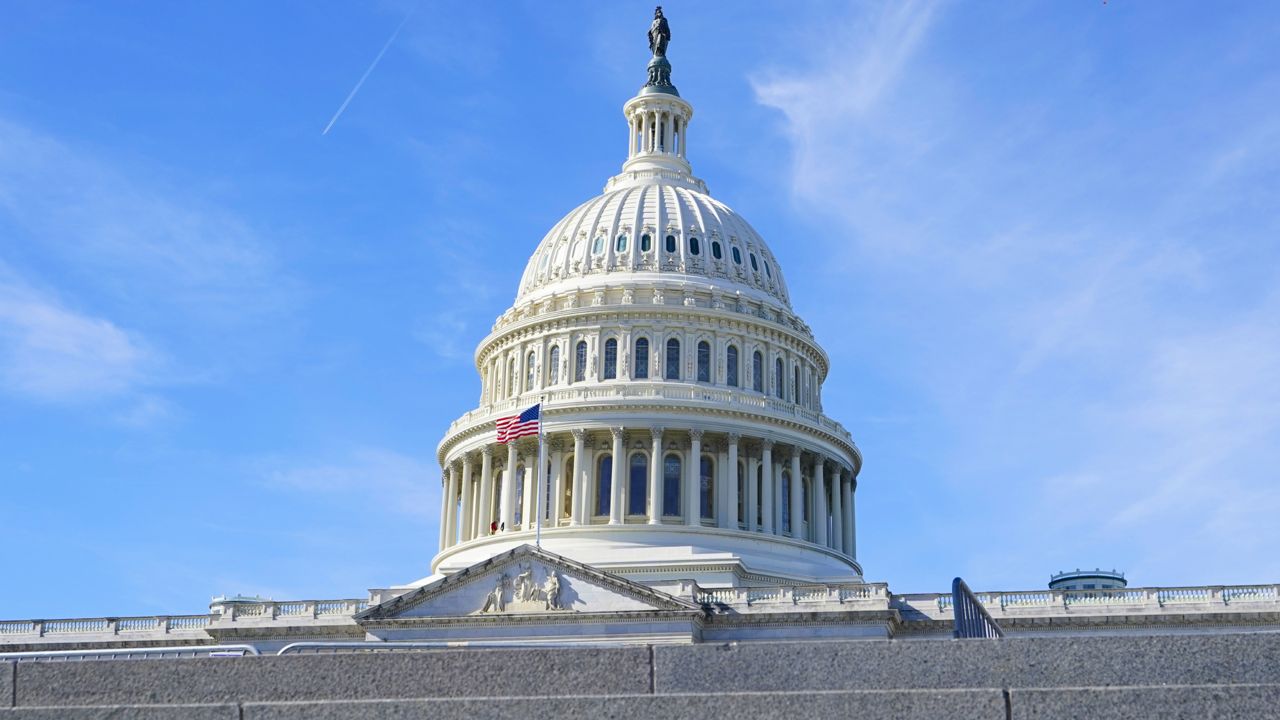Nearly a week after Election Day and control of the House of Representatives remains up in the air, with key races across five states – Alaska, California, Colorado, Oregon and Maine – still tabulating votes in what will likely be neck-and-neck races.
Either party needs 218 seats to hold the majority in the House; as of Tuesday morning, Republicans had 217 seats, one shy of a majority, while Democrats held 205.
Roughly a dozen House races have yet to be called – and the winner in some will likely come down to just a few hundred votes.
Democrats on Saturday ensured at least a 50 - 50 split in the Senate when incumbent Nevada Democrat Catherine Cortez Masto won reelection. Whether Democrats have a 51 - 49 majority will depend on the outcome of the December runoff in Georgia between incumbent Democrat Sen. Raphael Warnock and Republican challenger Herschel Walker.
Still, control of both chambers of Congress – however narrow the majority – would increase Democrats’ odds of passing key pieces of President Joe Biden’s agenda, which will likely be focused on sustaining economic growth and pushing through climate, public health and safety policies. Biden himself admitted on Monday that his party will likely fall short of the votes needed to codify abortion access into federal law even with the outstanding races yet to be called.
Here are the House races that will determine the balance of power in Congress:
Because Alaska uses ranked-choice voting, it may still take weeks to determine the final victor for the state's single House seat – though Democrat Mary Peltola, who won an August special election to fill the seat vacated by the late Rep. Don Young, appears likely to clinch the position to serve a full two-year term.
Currently, Peltola has 47.3% of the votes, ahead of former Republican governor Sarah Palin, Republican Nick Begich and Libertarian Chris Bye with 80% of precincts reporting.
Should no candidate gain more than 50% of the vote, the candidate receiving the lowest number of ballots will be eliminated and their second-choice votes distributed amongst the other candidates. A second round of counting will occur on Nov. 23, and rounds will then continue until a final candidate is left.
State law also requires election officials to count all absentee and overseas ballots received through Nov. 15.
California races are currently split, with control of Congress likely running through America's most populous state.
One close race is for California’s 47th District, where incumbent Rep. Katie Porter – a Democrat who made a name for herself with her fiery questions during committee hearings – is leading Republican challenger Scott Baugh by roughly 3,000 votes as of Tuesday morning, with 80% of precincts reporting.
The closest race in California appears to be in the state’s 13th District, where Democrat Adam Gray leads Republican John Duarte by a little more than 750 votes, with 78% of votes counted.
Cook Political Report analyst David Wasserman said control of the House of Representatives will “absolutely come down to California,” and warned that it could take several more days to know the results in many of the close races across the state.
There are just two uncalled House races in Colorado, both of which are shaping up to be narrow victories for the ultimate winner.
Colorado’s 3rd District is pitting Republican incumbent Rep. Lauren Boebert, a far-right member of the party who has become known for supporting fringe conspiracy theories during her first term in Congress, against Democrat Adam Frisch, a businessman and former city councilman.
As of Tuesday morning, Boebert led Frisch by just over 1,100 votes, with 99% of precincts reporting.
Frisch on Monday encouraged supporters to donate to his campaign in order to “get across the finish line of curing and a likely recount.” Colorado law requires an automatic recount if the margin of victory in an election is less than or equal to .5% of the winner’s vote, meaning the current .4% margin is within bounds for a recount.
Colorado’s 8th District also remains uncalled, with Democrat Yadira Caraveo leading Republican Barbara Kirkmeyer by less than 2,000 votes with 99% of precincts reporting.
Maine has just two House seats, one of which has yet to be called. In Maine’s 2nd District, incumbent Democrat Jared Golden is leading Republican Bruce Poliquin by just over 10,400 votes with 99% of precincts reporting.
There is also Independent candidate Tiffany Bond on the ballot, with Maine offering ranked-choice voting. Since no candidate received more than 50% of the vote, Bond will be eliminated from the contest, and the second-choice votes on ballots cast for Bond will be distributed to Golden and Poliquin.
In 2018, Golden defeated Poliquin in a ranked-choice voting contest.
The remaining House race yet to be called is in Oregon, which boasts a total of six House seats. Oregon’s 6th District, between Democrat Andrea Salinas and Republican Mike Erickson, remains too close to call with just 85% of precincts reporting.
Salinas holds a 4,400-vote edge over Erickson as of Monday. Whoever wins will be the first representative of the new district created thanks to the outcome of the 2020 census.



